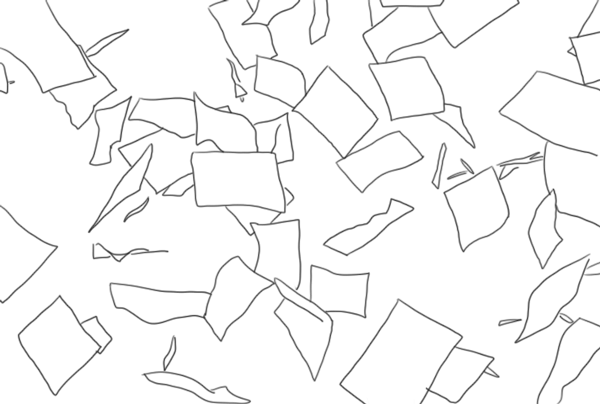Why do students have to submit reports on paper?
Gepubliceerd: 17 December 2015 • Leestijd: 1 minuten en 48 seconden • English Dit artikel is meer dan een jaar oud.
Theses, reports and other educational assignments must often be submitted on paper. We should get rid of this habit for various reasons, say the students of the central representative advisory board.
It costs students money to print, they have to travel to school to submit the paper version, and both the use of paper and the printing itself are anything but sustainable. Students from the representative advisory board (smr) had already brought up the matter earlier this year and came back to the topic again last week. Following this plea, Profielen asked several lecturers for their opinion.
Bad for the environment
‘Why are we obliged to print our work?’ The chair of the student representative advisory board, Brian van der Sluijs, wondered aloud. ‘We should stop doing this, make it the responsibility of the lecturer!’ Going to school to submit your work also costs money and it’s bad for the environment.’ The student representative advisory board wants ‘the submission of reports to occur through N@tschool, across the whole university’ or by means of another IT infrastructure still to be implemented.
College chairman, Ron Bormans, is sympathetic towards this plea of the student representative advisory board, but he believes an immediate ban on printing to be ‘over the top.’ Bormans: ‘It’s easy to say that, but this will disrupt the education. We are dealing with certain customs and traditions, and you simply can’t scrap them one Monday afternoon; we have to slowly work up to it. Perhaps a group of students can do some research into it?’
The student representative advisory board feels that there is some substance to this idea, although member Paul Reinders protested against it. To Bormans: ‘Of course change is inconvenient, but tradition is an improper argument. You are now purposefully resisting it, although you are in a position to make a decision about it.’
Paper during meetings
Bormans rejected the latter comment. ‘I am not purposefully resisting this; I am a realist,’ the college chairman said, who was then subtly pointed out all the paper that was used during the meeting of the student representative advisory board.
During this item on the agenda, Paul Reinders referred to Article 7.50 from the Dutch Higher Education and Research Act (WHW). He refers to the part of the Act that says that the college is not permitted to demand that students make any additional contributions, such as the cost of printing. According to Bormans, this is permitted. ‘If you go to school, you also buy, for example, a schoolbag, a notebook and a pen; it’s completely normal that such costs arise.’
Jos van Nierop



Laat een reactie achter
Spelregels
De redactie waardeert het als je onder je eigen naam reageert.
Lees hier alle details over onze spelregels.
Aanbevolen door de redactie
Docenten starten petitie: HR moet zich uitspreken tegen schending mensenrechten in Gaza
Vervroegde renovatie Museumpark gaat zorgen voor ingrijpend verhuiscircus
Ondernemende Ad-student Joyce start op HR pilot met gratis menstruatieproducten
Back to Top